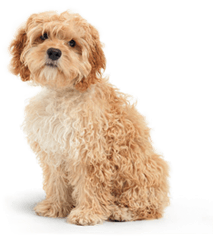Houseplants That Are Safe for Cats and Dogs

Find out about some of the best houseplants for cats and dogs, as well as what to avoid when it comes to adding greenery to your pet-friendly residence...
Houseplants are a beautiful addition to any home, bringing life and colour to your space – although choose which ones you want carefully, as some can be harmful to pets.
What are the benefits of houseplants?
Houseplants don’t just look pretty – they have functional purposes, too. The benefits they offer should make everyone – especially pet owners and parents – see them as a necessity rather than simply as objects of décor.
The main perks of having houseplants in homes with pets include:
- More oxygen, which makes both human and animal bodily functions work better, in addition to naturally purifying the air
- Increased humidity levels, meaning softer skin, less dandruff on any furry family members, and clean, healthy airways for you as well as your pets
- Helping to improve attentiveness and focus, letting you devote more time to coming up with fun activities for your dog or cat
- Being able to reflect background noise, creating a more tranquil environment for your animal companions
It’s important to know which houseplants are safe for cats and dogs so that you can enjoy all they have to offer without worrying about your curious pets getting sick.
Which houseplants are safe for cats and dogs?
The importance of researching pet-friendly houseplants cannot be overstated. Pets cannot distinguish between toxic and non-toxic flora, so it’s up to you to make informed choices about what greenery you’re going to have in your home to avoid houseplants poisonous to pets.
Types of plants that are safe for cats and dogs include:
- Money tree
- Hibiscus
- Spider plant
- Bamboo
- Certain herbs – including basil, dill, sage and rosemary
However, just because a plant isn’t toxic to cats and/or dogs, doesn’t mean it won’t still make them sick. Be sure to keep any pots or trays containing houseplants out of their reach to avoid any unpleasant incidents.
Which common houseplants are poisonous to pets?
Much in the same way as humans, cats and dogs can also be extremely allergic to certain plants, grasses, pollens and other substances – and you will need to steer clear of them when choosing which flora you’d like to include in your household. Some common species to avoid are:
- Lantana
- Philodendrons
- Poinsettia
- Dumbcane
- Hyacinths
- Mistletoe
- Easter lily
If you’re concerned that your pet has ingested a poisonous plant or you notice any signs of poisoning – such as vomiting, drooling, diarrhoea, disorientation or even collapsing – then take them to the vet immediately.
Creating a plant-filled, pet-friendly home
When adding plants to your household, make sure that they’re out of reach from any small animals. Pets often enjoy chewing greenery, and in the process can become sick.
Of course, it’s important to remember that dogs eat grass and vomit it back up. They are also likely to do this if they eat any vegetation, but that doesn’t necessarily mean they’ve been poisoned. As always, contact your vet if you believe your pet is experiencing poisoning at any level.
It may be worth adding some edible grass to the foliage in your home. For cats and dogs, the temptation of chewing and swallowing plants often proves too great, so choose grass kits that provide all the nutrients your pet needs. Set them about each plant pot or tray in your home and replace regularly to avoid any health upsets in the future.
Navigating pet-friendly plants and how best to display them around your household can be tricky. However, if you do your research on flowers and trees that are safe for cats and dogs, there’s no reason why you can’t liven up your environment for a healthier, happier home.
Finally, it’s always good to have proper insurance that will help your pet access the best care possible, should you need it.

